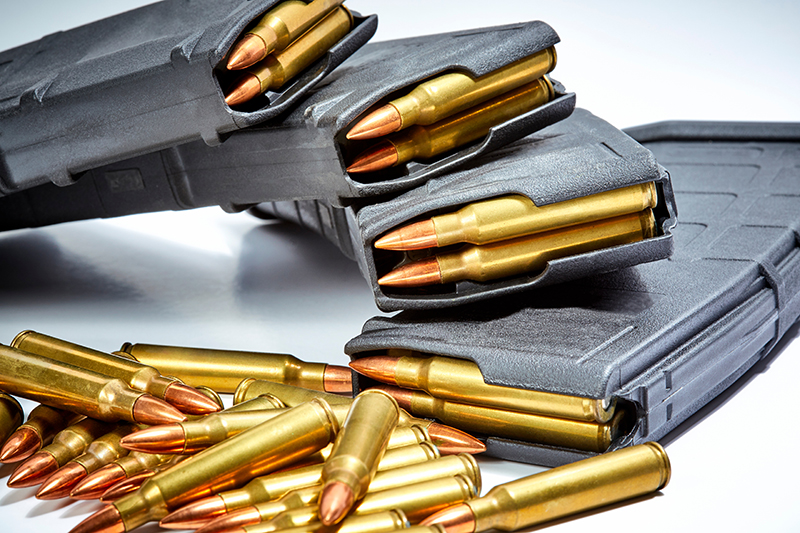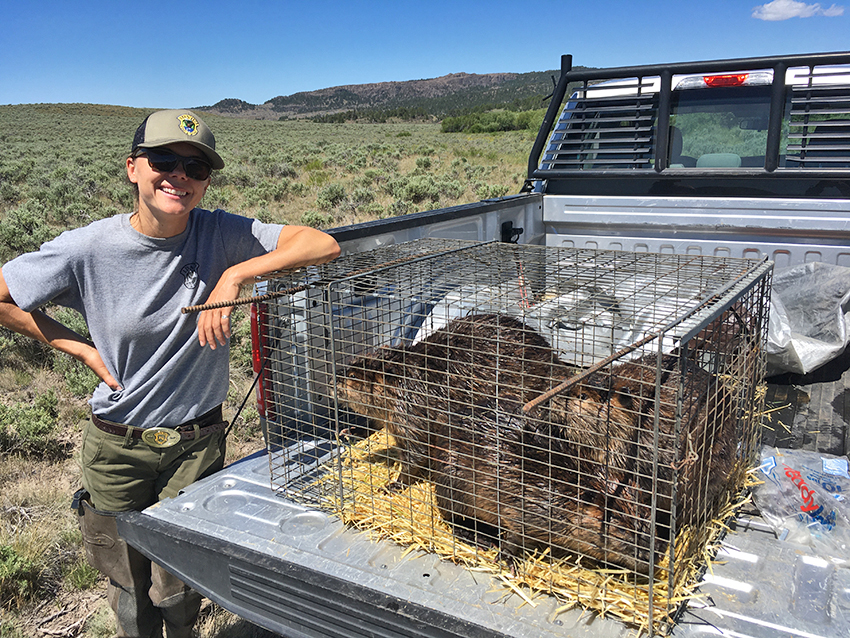7 Common Misconceptions
About Female Shooters
You’ve likely already seen the statistics, but the latest retailer survey from the National Shooting Sports Foundation (NSSF) revealed an estimated 5.4 million people purchased a firearm for the first time in 2021, accounting for nearly 30% of all firearm purchases.
According to the same survey, of the 5.4 million first-time gun buyers, more than 33% were women — a conservative number compared to the 2021 National Firearms Survey that showed close to half of all new U.S. gun buyers since the beginning of 2019 have been women.
There’s no disputing the undeniable shift in the once male-dominated market and it’s time to finally put some of the common misconceptions about female gun owners to rest.
We reached out to more than a dozen women (and some men) in the industry including dealers, firearm instructors, manufacturers, competitive shooters and hunters, to share the biggest misconceptions about women and guns they hear most often. Here are seven, in no particular order.
1. Women need smaller-caliber weapons to be able to physically control them.
The notion that women need smaller-caliber weapons, or some similar variation to this statement, was by far the most frequent response received.
Ronald Wright, who works for Frontier Justice, said it was the most overheard comment from the past 20–24 months.
The misconception stems from the idea “most women have small hands and limited hand strength, making smaller frames and lower calibers a preferred option,” said Trish Harrold, lead instructor at Frontier Justice’s location in Omaha, Neb.
The reality is women are capable of shooting the same guns as men. Women come in all shapes and sizes, and just like men, the best fit will depend on each individual and their preferences — not their gender.
Plus, as we all know, small does not mean low recoil, which is what many women, particularly first-time gun buyers, are looking for.
2. Revolvers are the best handguns for women.
“The biggest misconception I hear is female shooters need something ‘simple’ like a revolver and if they are shown a semi-automatic handgun they will get confused,” said Maxx Tate, assistant manager at Frontier Justice. “That’s absurd, and it’s mainly their husband or boyfriend pushing them in this direction. Most of the time, after showing them some kind of semi-automatic pistol they love it, and generally can use it more proficiently than the person who brought them in.”
This falsehood is not only an insult to women’s intelligence, but also ties into the misconception women are not strong enough to work an action.
“A lot of women who have come to me after buying a revolver because it was recommended to them have found they dislike them after getting familiar with them,” said Debbie Rose, a retired New York State Police investigator and founder of firearms instruction company Girls Shoot Guns Too.
“Many women find revolvers are not comfortable and are very ‘snappy’ due to the size of gun and barrel length, particularly .38 Specials,” she added.
“The notion that women need smaller-caliber weapons, or some similar variation to this statement, was by far the most frequent response received.”
3. Women can’t shoot as well as men.
The idea women can’t shoot as well as men is unequivocally false. In fact, most shooting instructors, both men and women, will happily tell you women are better shooters than men. While there isn’t any science to support either claim, there are endless anecdotes to support the latter.
A few years ago, a 27-year U.S. Army marksmanship instructor shared his thoughts in an article published on NRAFamily.com.
“As a military logistician, my units had around 20% female personnel in both officer and enlisted ranks. All the women fired Expert their first day, but less than a third of the men did so,” said retired Col. Kenneth Haynes. “Several men had to retrain and repeat the course to qualify. This pattern continued when the 9mm replaced the .45 in 1985 until I retired in 1997. It also appeared differences in musculature and hand size had no effect on the scores.”
Col. Haynes also admitted his wife and both of his daughters can outshoot him.
The truth is men and women are equal in terms of the ability and physical skills needed to learn to shoot. The differentiator is women tend to be more coachable. They are more open-minded, listen better, have fewer preconceived notions and their egos don’t get in the way as much.
4. Women require special gear.
If you weren’t already aware, it’s time to abandon the “shrink it and pink it” strategy when it comes to marketing firearms to women.
“So many companies market different colored holsters and accessories specifically to women, but I know many men who like the interesting colors as well,” said Tammy Bartels, director of training at Frontier Justice. “Women don’t require any special gear.”
Bartels added she personally uses the exact same types of gear her male counterparts in the training sphere use.
As far as training goes, women don’t need special classes or training.
“While there is some value in women-only classes to help ease those unsure of themselves into training, most women I know (myself included) who are serious about firearms and personal protection advocate for coed training,” said Bartels. “If a woman is going to have to defend herself, it will likely be against a man who is bigger and stronger than her. It’s important to be realistic about your abilities and to get a little uncomfortable to see how you will react under duress.”
5. Women who conceal carry are scared or paranoid.
Amy Robbins, CEO and co-founder of Alexo Athletica, said one of the most common misconceptions she hears about women who carry a firearm is they do so because they’re paranoid.
Arguably the most frustrating part of this misconception isn’t that it’s not true, it’s that no one would ever make the same claim about men.
Men and women don’t carry because they are paranoid; they carry because they want to be prepared and equipped to take control of their life.
“Men and women don’t carry because they are paranoid; they carry because they want to be prepared and equipped to take control of their life.”
6. Women can’t shoot while pregnant.
While there are some precautions or adaptions women may need to make, it doesn’t mean they have to give up shooting entirely during pregnancy.
Jen O’Hara, co-founder of Girls with Guns Clothing has shot and instructed students up until 24 weeks of her pregnancy.
“I am cautious with handling lead and eating or touching my face, and because I teach around 50 students a month,” she said.
O’Hara did eventually have to quit teaching at a certain point in her pregnancy because of the continuous noise in utero, but does a lot of dry-fire to keep her skills fresh.
Pregnancy hasn’t stopped her from hunting either. When we reached out for comment on this article, she was gearing up to head to Hawaii for an Axis hunt during which she’d be in her third trimester.
(I was glad when Jen brought this point up, as I read and heard many of the same things when I was pregnant with my first child. One of my favorite photos from that pregnancy was taken while deer hunting at 34 weeks. Admittedly, I did opt to hunt from ground blinds versus treestands and used pregnancy as an opportunity to learn how to hunt with a compound bow.)
7. Women can shoot their gun through a concealed carry purse.
This misconception is more about gear marketed toward women rather than female shooters themselves, but it’s still an important claim to clear up.
Maria Dockery, president of Femme Fatale ARMS & Training, shares why women shouldn’t fall prey to this relatively common marketing tactic.
“First, if you have a semi-automatic it will not cycle properly and will leave your gun unable to fire another shot without manipulating the firearm,” she said. “All you’ve done is deploy a loud sound maker in your purse.”
“Second,” she continued, “the bullet will not travel in the direction you intend it to go. It’s traveling through leather, zipper, etc., meaning it’s highly unlikely you will strike your attacker.”
“Third, you’ll ruin your purse! And purses aren’t cheap,” she said. “Lastly, you may set your purse on fire … then again, a crazy woman swinging a flaming purse may be quite effective in deterring an attacker.”
Silver Lining
As disappointing as it is to realize these misconceptions, stereotypes and generalizations are still as widespread as they are in 2022. Still, 5.11 Chief Marketing Officer Debra Radcliff offered a hopeful sentiment about the current and future direction the industry is taking.
“We feel the industry as a whole has become so welcoming and supportive of women adopting the sport in recent years,” she said. “If anything, there is now, more than ever, a heightened enthusiasm, greater encouragement and increased opportunities for women to receive proper education around firearm safety.”
Dealers, have your say — what other misconceptions would you add here?
Email comments@shootingindustry.com.





